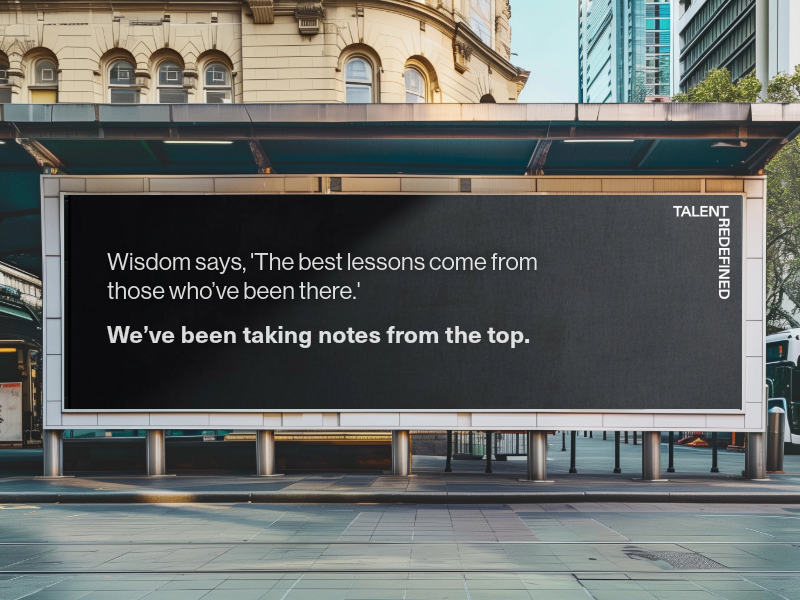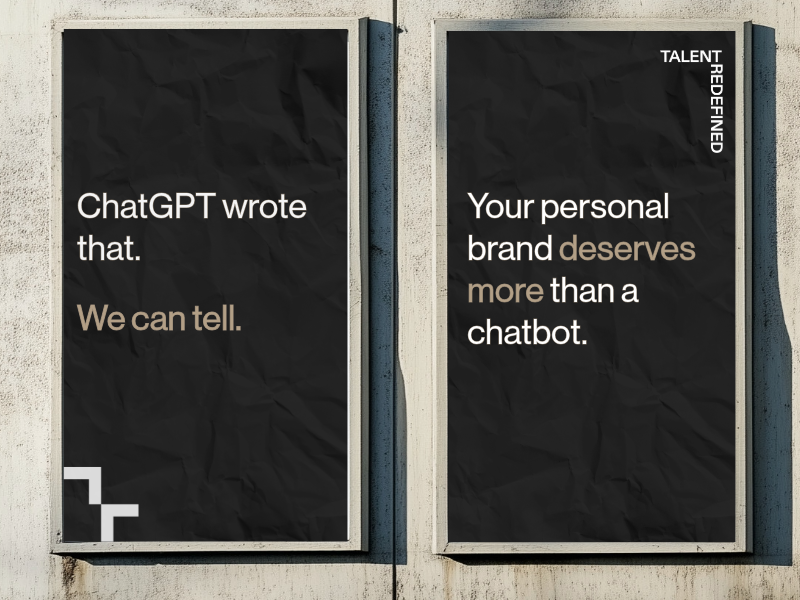

Insights
Your Interview Playbook
Interviews can feel like a high-wire act. You want to impress, but you also want to be yourself.
Having placed over 50 senior leaders, 250 sales professionals, and 100 marketers – the ones who land the role aren’t always the ones with the most experience. They’re the ones who show up ready. Confident. Clear on who they are and what they bring.
Consider this your no BS playbook to interviewing.
But first, let’s clear something up. I’ve seen a few debates on whether recruiters should give candidates advice on interviewing because, apparently, it’s “cheating the system.” Seriously? The job of a recruiter is to give both clients and candidates the best experience, guidance, and advice. That means interview advice is part of the package, for both parties.
Think of it like a sports team. No coach is handing out a playbook that guarantees a win. They give their players the strategy so then can step onto the field and deliver. And trust me, any good interviewer will throw in a few curveballs to keep you on your toes, you can’t prep for that.
Alright, now that we’ve got that sorted, let’s get into the good stuff.
Do Your Homework. Properly.
Every hiring manager I’ve worked with says the same thing “If we’re meeting a candidate, we expect them to know who we are.” It’s not enough to skim the website and memorize their company values. You need to show curiosity – one of the most in-demand traits right now.
So, here’s your action plan: dig deeper. Look into their latest product launch, funding round, or leadership changes. Follow their social media. Know their competitors. Walk in like someone who already works there, not someone who just skimmed the “About Us” page five minutes before the interview.
Show Me the Numbers. Be Ready to Prove Them.
As Chet Faker put it, “talk is cheap.” Employers want proof. They don’t just want to hear that you increased revenue or streamlined operations, they want to understand how.
Bad: “I always overachieve my sales targets”
Better: “Sales were down 15%. I spotted a gap in my outreach strategy, I built a new approach which looked like x, and within three month, sales jumped 30%.”
Numbers > adjectives. Every time.
Make it count.
- Tailor your wins. Some companies care about revenue. Others focus on market share, retention, or brand impact. Tailor your examples to what they care about.
- Confidence is great. Credibility is better. If you can’t break down how you got those results, they won’t hold weight. Own your numbers, understand them, and be ready to explain the story behind them.
Be Ready for the Curveballs.
“Tell me about a time you failed.”
“What’s your biggest weakness?”
“How many golf balls fit in a school bus?”
Interviewers love throwing in these wild cards to see how you think on your feet. The trick? Don’t panic. Keep it real. If you made a mistake, own it—but focus on what you learned and how you adapted. No one’s expecting perfection, but they are expecting self-awareness.
Soft Skills Matter More Than You Think.
I recently sat down with 40 leaders and asked: What are the top five soft skills you look for in a candidate? Here’s what they said:
Curiosity – People who ask why, challenge the norm, and keep learning.
Emotional Intelligence (EQ) – The ability to read the room, navigate relationships, and lead with self-awareness.
Adaptability & Resilience – Because change is constant, and those who can’t pivot, won’t last.
Communication & Influence – It’s not just about speaking well; it’s about making people listen, trust, and act.
Creativity & Innovation – The skill that AI can’t replace. The ability to think differently and solve problems in a way no one else can.
If you were interviewing tomorrow, how would you stack up? What do you own? Can you back it up with examples? Where do you need work? And more importantly, how are you closing the gap?
Read the Room.
Interviews aren’t just about what you say, they’re about how you say it.
Energy matters. If your interviewer is all business, keep it sharp. If they’re cracking jokes, lean in. Great candidates match the tone and pace of the conversation, it makes the whole thing feel less like an interrogation and more like an actual discussion.
Why You?
The inevitable “Why should we hire you?” question. You know it’s coming, so make it count.
The best candidates don’t stumble through this. They own it. They know exactly who they are, what they stand for, what they don’t stand for, what they want, and most importantly what they bring to a business.
But here’s the thing: this kind of clarity doesn’t just happen. It takes work. Reflection. A few ego checks. And the ability to not just think about who you are, but to actually explain it in a way that lands. How you communicate who you are matters.
Because if you can’t communicate your value, how can an employer see it?
Do the work. Get clear.
Ask Smart Questions.
The questions you ask are just as important as the ones you answer. They show insight. Curiosity. Commitment. But more than that, they give you the space to deep dive – to make sure this role, this company, and these people are the right fit for you.
When they hit you with “Do you have any questions for us?” don’t waste it.
- Bad: “What’s the company culture like?” (You should already know this.)
- Better: “What’s the biggest challenge facing this team right now, and how could someone in this role help solve it?”
It shows you’re thinking beyond the job title, and that’s what makes you memorable.
Final Thought: Own the Room.
So do the prep. Know your numbers. Read the room. And most importantly, be you.
Because the best interviews? They don’t feel like interviews at all.
Happy interviewing!




